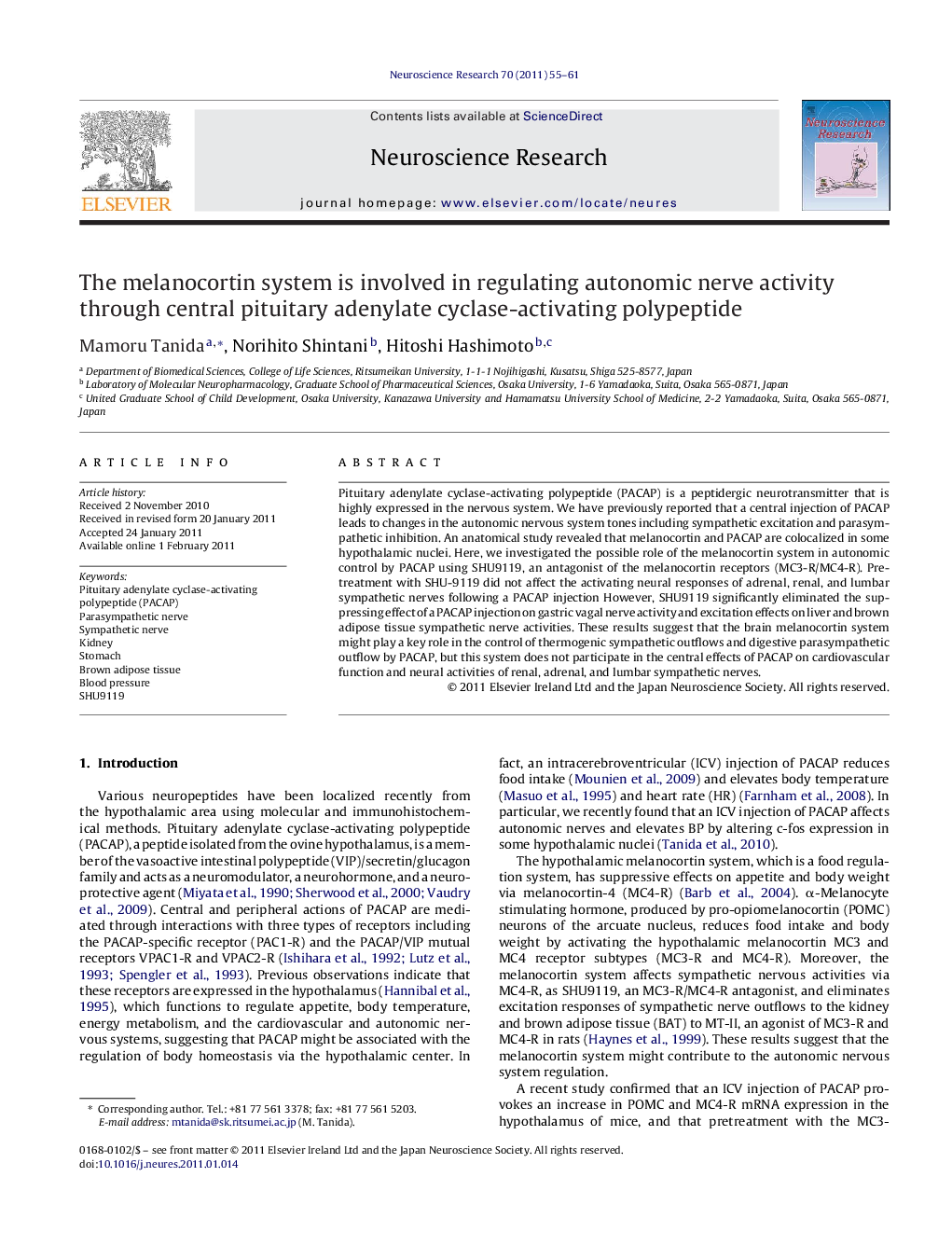| Article ID | Journal | Published Year | Pages | File Type |
|---|---|---|---|---|
| 4352277 | Neuroscience Research | 2011 | 7 Pages |
Pituitary adenylate cyclase-activating polypeptide (PACAP) is a peptidergic neurotransmitter that is highly expressed in the nervous system. We have previously reported that a central injection of PACAP leads to changes in the autonomic nervous system tones including sympathetic excitation and parasympathetic inhibition. An anatomical study revealed that melanocortin and PACAP are colocalized in some hypothalamic nuclei. Here, we investigated the possible role of the melanocortin system in autonomic control by PACAP using SHU9119, an antagonist of the melanocortin receptors (MC3-R/MC4-R). Pretreatment with SHU-9119 did not affect the activating neural responses of adrenal, renal, and lumbar sympathetic nerves following a PACAP injection However, SHU9119 significantly eliminated the suppressing effect of a PACAP injection on gastric vagal nerve activity and excitation effects on liver and brown adipose tissue sympathetic nerve activities. These results suggest that the brain melanocortin system might play a key role in the control of thermogenic sympathetic outflows and digestive parasympathetic outflow by PACAP, but this system does not participate in the central effects of PACAP on cardiovascular function and neural activities of renal, adrenal, and lumbar sympathetic nerves.
Research highlights► Autonomic nervous responses were caused by PACAP injection into the hypothalamus. ► SHU9119 treatment blocked PACAP induced-changes of discharges of BAT, liver and stomach. ► SHU9119 treatment did not affect effects of PACAP on neural activities of kidney, adrenal gland and lumbar.
